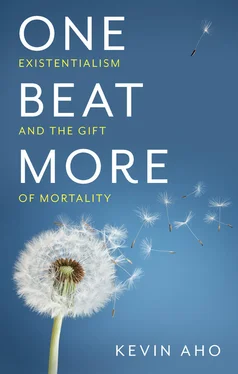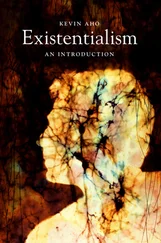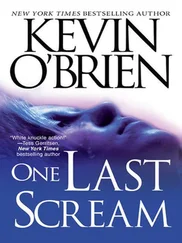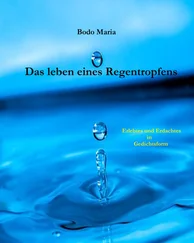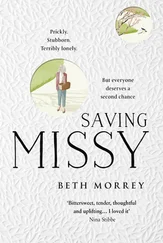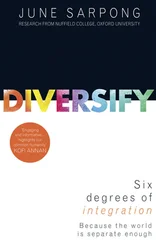Ivan Ilych is like all of us, clinging to familiar cultural norms and symbolic practices that shelter us from the terrifying mutability and impermanence of existence. They serve as character defenses that conceal death by creating the appearance that there is something stable, solid, and secure about our lives. Illness and old age are painful exercises in tearing those defenses down and in giving up on the illusion of control. Older persons are frightening to us precisely because they expose our own vulnerability, and we live in a state of denial by pushing them to the margins of our lives. When we mock older persons, we are drawing a clear distinction between “us” and “them.” In this way, the rampant ageism we experience today can be regarded as a manifestation of our society’s effort to deny and turn away from death. Even media images of so-called “successful aging” are often expressions of this denial, revolving as they do around tropes of autonomy, strength, and mobility. They generally betray the hard realities of growing old, of bodily pain and mental decline, of loss, of being confined to a wheelchair or nursing home. But, more importantly for the existentialist, they point to a deep despair founded on an unwillingness to be honest with ourselves. And Kierkegaard makes it clear that the masquerade is in vain; illness, disability, and death always catch up to us.
Do you not know that there comes a midnight hour when everyone has to throw off his mask? Do you believe that life will always let itself be mocked? Do you think you can slip away a little before midnight in order to avoid this? Or are you not terrified by it? I have seen men in real life who so long deceived themselves that at last their true nature could not reveal itself. 15
It is clear that the midnight hour is coming, but here is the trick. For Kierkegaard, we should not recoil from death but earnestly turn toward it, welcome it, and work to integrate it into our lives. Death is our teacher. It is a reminder of our temporal nature, that our time is short, and that our lives cannot be delayed or postponed until tomorrow, next month, or next year. Rilke refers to this attitude as an affirmation of our existence, a state in which we don’t run away from death but befriend it, allowing it to “come very close and snuggle up to [us].” 16
Believe me that death is a friend , maybe the only one who is never, never deterred by our actions and indecision … and this , you understand, not in the sentimental–romantic sense of a denial of life, of the opposite of life, but our friend especially then when we most passionately, most tremblingly affirm our being-here … Death is the real yes-sayer.” 17
This attitude of affirmation and acceptance is what Kierkegaard means by “earnestness” ( alvor ). It is to live with a sense of seriousness about death, and it is this seriousness that gives our projects a sense of urgency, meaning, and value that they otherwise wouldn’t have if we continued to drift along in self-deception, thinking that our time was limitless. “Earnestness,” in Kierkegaard’s words, “becomes the living of each day as if it were the last and also the first in a long life, and the choosing of work that does not depend on whether one is granted a lifetime to complete it well or only a brief time to have begun it well.” 18When our own death is squarely in view, it enriches the fleeting moments of our lives, allowing us to become fully present to their depth and poignancy. This kind of person, for Kierkegaard, is outwardly unremarkable. In Fear and Trembling , he suggests an earnest man could easily be mistaken for a clerk, a shopkeeper, or a postman; there is nothing “aloof or superior” about him. What stands out, however, is that he seems to “take delight in everything he sees.”
He lives as carefree as a ne’er-do-well, and yet he buys up the acceptable time at the dearest price, for he does not do the least thing except by virtue of the absurd … Finiteness tastes to him just as good as to one who never knew anything higher. 19
When Kierkegaard, writing for his nominally Lutheran readers in nineteenth-century Copenhagen, says that the earnest person lives “by virtue of the absurd,” he is making it clear that such a person recognizes the fundamental paradox of religious existence, that the divine is not to be found in some otherworldly realm; it is actually bound up in the temporal. It is the finite that has infinite significance. By soberly facing and accepting death, the true Christian experiences the divine in this life , and is able to “live joyfully and happily every instant,” seeing that each moment might be his or her last. 20In this way the person recognizes an appalling truth about God: that “he wants you to die, to die unto the world,” because dying is a kind of freedom; it liberates us from trivial concerns and distractions and enables us to treasure the moments we have now rather than deferring life to some illusory future. 21The earnest person knows that we lie to ourselves when we think our happiness is always around the next corner, after the promotion, the wedding, the birth of the child, or the retirement. With death as our most uncertain certainty, all we have is this moment, and the moment is ambiguous; it is not just a cause for anxiety but a cause for joy as well. The German philosopher Martin Heidegger will later develop this idea in Being and Time , by writing: “along with the sober anxiety which brings us face to face with our individualized potentiality-for-being, there goes an unshakable joy in this possibility. In it, existence becomes free from the entertaining ‘distractions’ with which we busy ourselves.” 22
Oncologists and palliative care physicians have long been witnesses to this kind of personal transformation. They have treated terminally ill patients who were initially horrified at their diagnosis but eventually came to view it as liberating. In accepting death, their remaining days often lit up with a sense of urgency and deep meaning; the gravity of their condition pulled them away from frivolous quarrels and ego-driven concerns toward a feeling of gratitude for the short time that was left. Clinical psychologist Mary Pipher describes a conversation in which an oncologist tells one of his patients: “you are about to experience the most affirming era of your lifetime.” 23Another patient, Kathy, who nearly died of kidney failure, echoes this sentiment, describing her own experience as an existential rebirth.
The first Kathy died during dialysis. She could not make it long in the face of death. A second Kathy had to be born. This is the Kathy that was born in the midst of death …
The first Kathy lived for trivia only. But the second Kathy—that’s me now. I am infatuated with life. Look at the beauty of the sky! It’s gorgeously blue! I go into a flower garden and every flower takes on such fabulous colors that I am dazzled by their beauty … One thing I do know, had I remained the first Kathy, I would have played away my whole life, and I would never have known what the real joy of living was all about. I had to face death eyeball to eyeball before I could live. I had to die in order to live . 24
Kathy has made what Kierkegaard calls a “leap” ( Spring ) into the absurd. 25Through her dying to the world, the world has come back to her with a depth and an intensity that were missing before her diagnosis. For Kierkegaard, “dying is one of the most remarkable leaps” precisely because it shakes us out of our routinized drift, allows us to see what is really important, and awakens in us a sense of appreciation for simply being alive. 26This may explain why many terminal patients have referred to their cancer diagnosis positively and, according to Irvin Yalom, sometimes describe it as the best thing that ever happened to them. 27But we don’t need a terminal diagnosis to experience this transformation. We are already terminal, and when we move into the evening of life, the transformation may come more naturally.
Читать дальше
